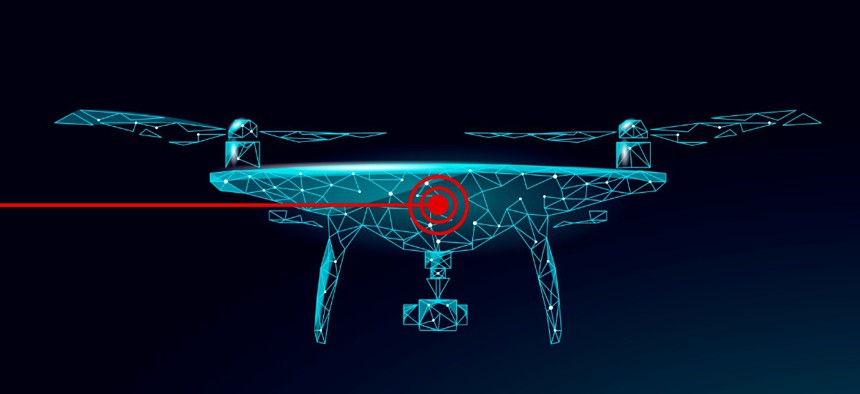FAA Names Five Host Airports to Test Counter-Drone Tech

LuckyStep48/iStock
The ultimate aim is to create national airport standards for drone detection and mitigation.
The Federal Aviation Administration on Tuesday named the five airports it selected to host comprehensive assessments of technology designed to detect and diminish risks posed by drones.
In August 2020, the agency unveiled plans to evaluate such systems through its Airport Unmanned Aircraft Systems Detection and Mitigation Research Program. At the time, FAA originally announced that it would begin testing at its William J. Hughes Technical Center—which is located adjacent to the Atlantic City International Airport in New Jersey—and then expand those efforts out to four other airports.
The agency also invited airport operators interested in hosting the tests to respond and asked drone detection and mitigation-related technology manufacturers, vendors, and integrators to weigh in on their relevant assets.
According to the announcement this week, the agency also will deploy robust assessments at four additional airports: Syracuse Hancock International Airport in Syracuse, New York; Rickenbacker International Airport in Columbus, Ohio; Huntsville International Airport in Huntsville, Alabama; and Seattle-Tacoma International Airport in Seattle, Washington.
At each of those sites, researchers will dive deep into evaluating at least 10 individual technologies or systems, with the ultimate intent to create standards for monitoring and confronting drones at airports nationwide. The agency is required by the FAA Reauthorization Act of 2018 to guarantee systems to counter risky drones don’t interfere with airport operations.
The tests are anticipated to roll out later this year and unfold through 2023.






